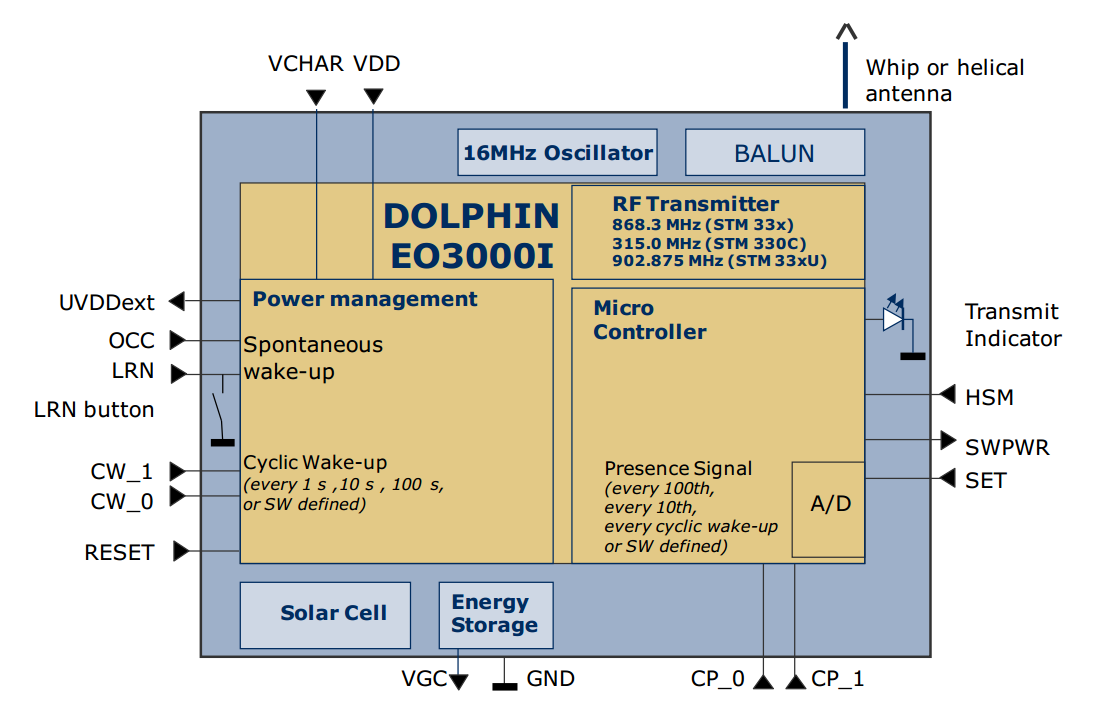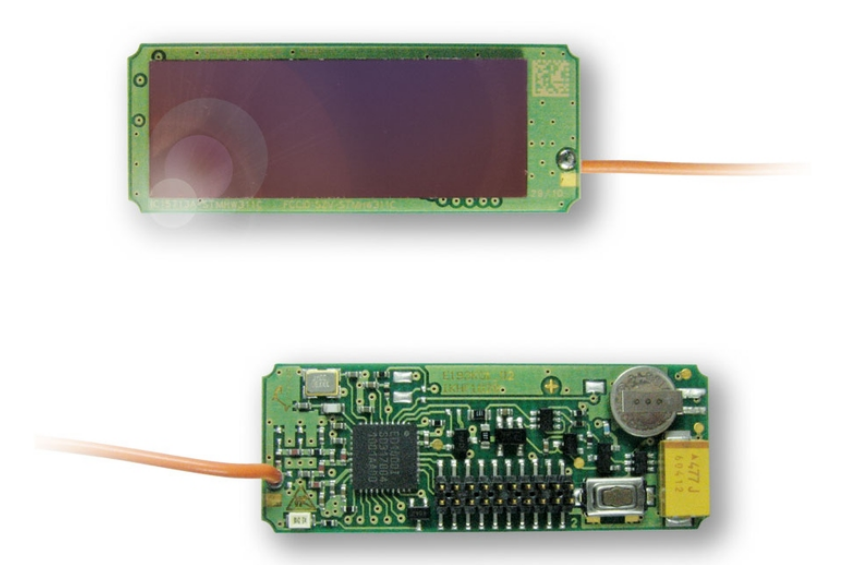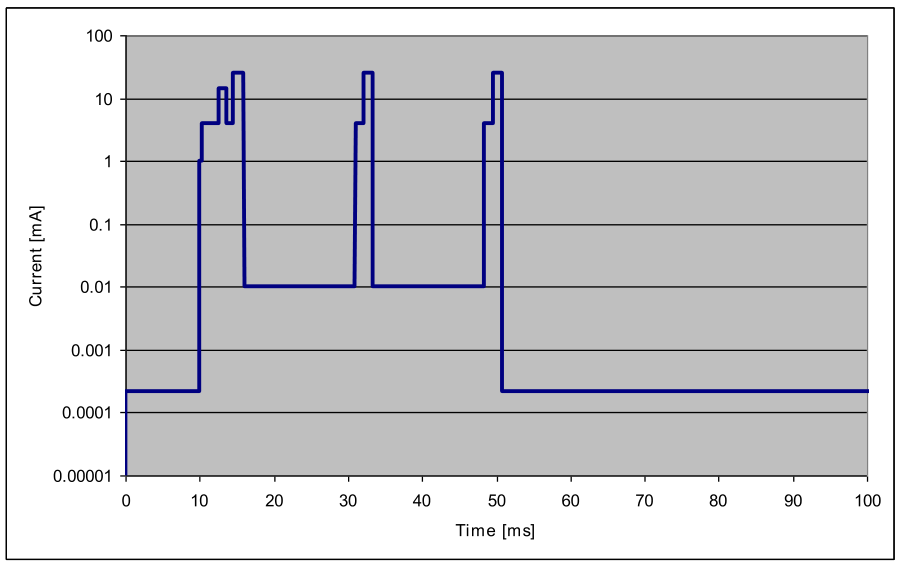EnOcean provides a family of energy-harvesting wireless modules (STM3xy) and has been chosen for this project as an underlying technology to develop sensor modules on. Specifically, STM3xx family modules are used as base for the wireless sensor nodes, along with a USB-300 transceiver which houses a TCM310 transceiver module. STM3xy modules are only able to transmit data periodically and are severely limited in doing so by the amount of ambient light, with the default time between 2 successive packet
transmissions being 15 minutes.
EnOcean STM330 Module
• Connecting additional sensors introduces an additional strain to the already very limited amount of power a STMxx module runs on, leading to energy conservation being the most critical problem in designing these modules.
• Communication between digital sensors and the EO3000I microcontroller are only possible with a logic level of 1.8V, requiring logic level conversion and introducing additional current consumption.
• Due to the very limited availability of energy, the intervals between measurements and transmission of data have to be minimized.

EnOcean STM3xy modules are small wireless nodes containing a processor which is specifically targeted at ultra-low-power applications. Specifically, a module
contains an 8051 compatible microcontroller with the following specifications:
• 32kb Flash, 2kB RAM
• 16MHz clock speed
• Integrated RF transceiver with a data rate of 125kbit/s
• Integrated ADCs and DACs
• 11 GPIO pins available through 20-pin connector
• UART and SPI
• Energy source (typically a solar cell, other sources such peltier elements possible)
• A 250mF Goldcap capacitor
• A charging circuit capable with the option of connecting an additional backup battery
Power usage during a measurement and transmit cycle of an STM330 module
At a minimum, an STM3xx module without additional circuitry uses 220nA when in deep sleep mode. (typical power usage of an STM3xx in different sleep states can be seen Table 2.1. It can be woken by either a watchdog or external events. While many sensors
provide the option to set thresholds and trigger pins of a connected microcontroller, this
can not be used if the sensor is powered by the voltage regulator on the STM3xx since
EnOcean modules don’t provide power to external sensors while in deep sleep mode. The
watchdog provides periodic wake-up signals between 10ms and 46.6h.
 karpour
karpour

Discussions
Become a Hackaday.io Member
Create an account to leave a comment. Already have an account? Log In.